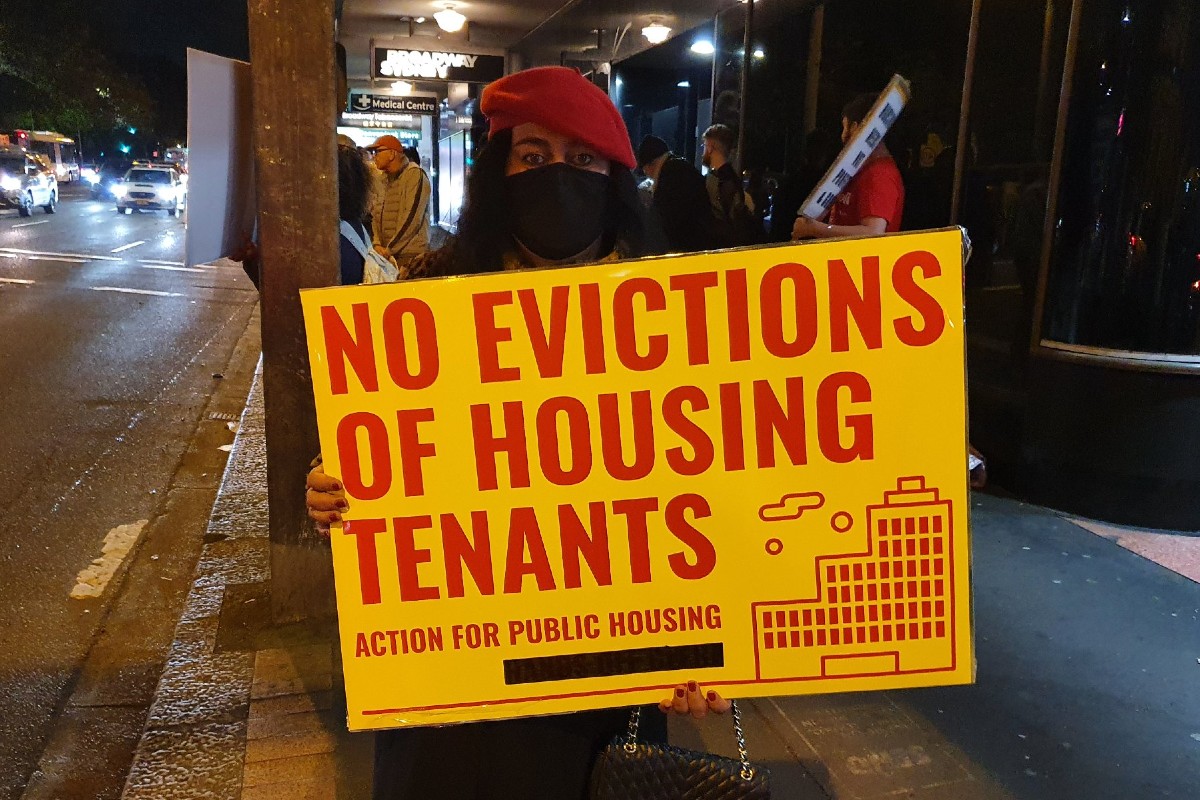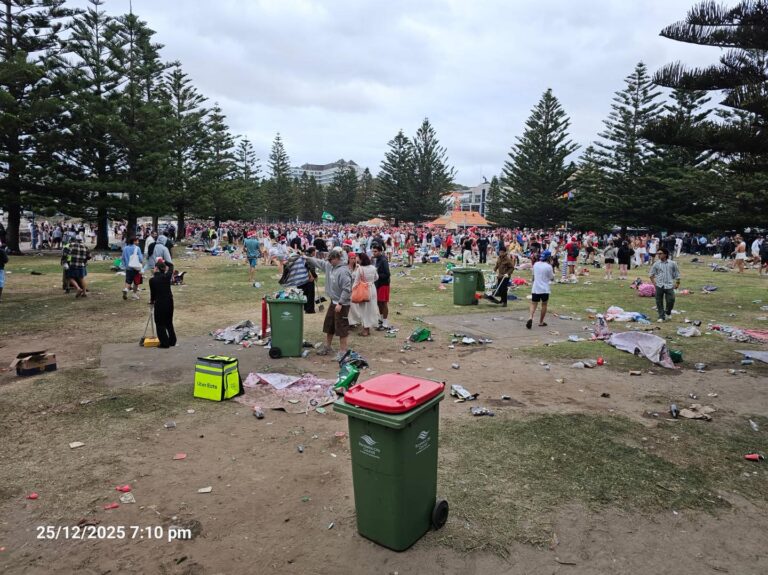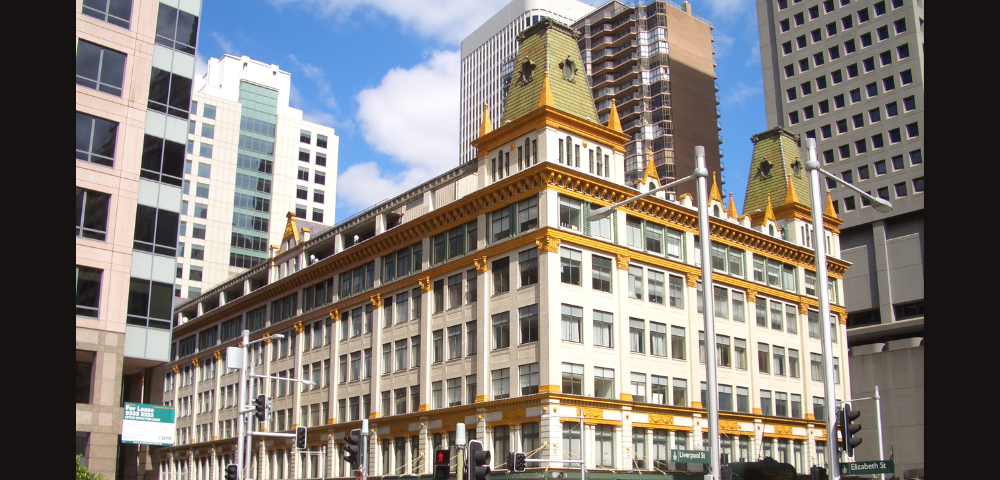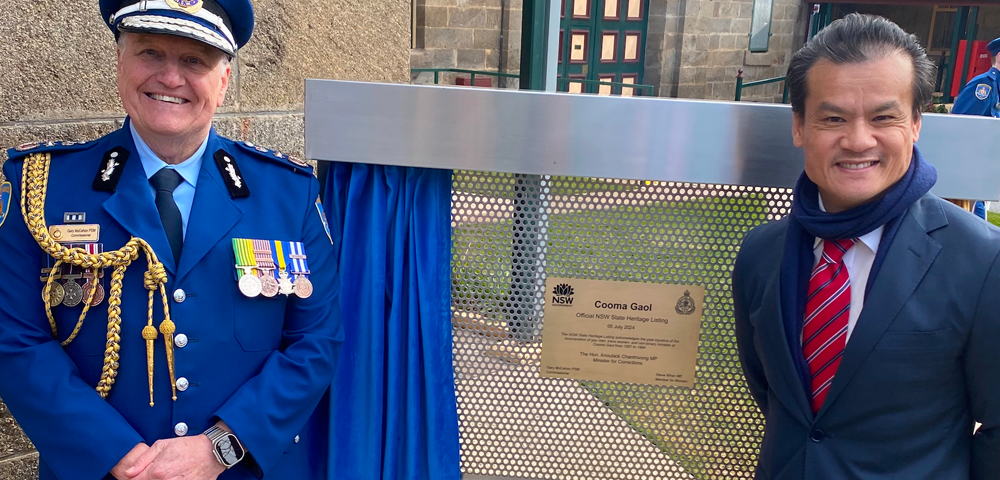
“Breaking a community”: What it’s like to face eviction from public housing

Image: Protestor holding a 'no evictions' sign at a June 2022 protest by Hands of Glebe. Photo: Facebook/Hands off Glebe.
By ERIN MODARO
Glebe public housing resident Carolyn Ienna has lived in her apartment for more than thirty years now. It’s close to the Fish Markets, around the corner from the foreshore at Blackwattle Bay, and nestled in a close-knit community of long standing Glebe-ites who have watched the inner-city suburb grow and change over the past decades.
About mid-way through last year she received a letter informing her that her building was up for redevelopment by the government, and soon she would have to relocate from her home of over three decades.
Now, the time has come for Carolyn to navigate the long and complex relocation process that public housing tenants must endure when their housing is knocked down; a process that is becoming a more than common occurrence in Sydney’s inner-city suburbs.
“Most of the residents here have been here since the beginning,” Carolyn said about her neighbours in the Glebe block. She said she had known many of them for decades, some having moved in when the building was first constructed around 35 years ago.
Carolyn was “devastated” when she was delivered the news that she would have to leave. She told stories about her life in public housing, including how close she had become with some of her neighbours over the years.
“Breaking up a community,” is how she described the relocation of herself and her neighbours.

Residents at the Glebe public housing block received relocation notice letters in August of 2022. The NSW government intends to demolish the existing 17 units and rebuild to 45 new units, including upgraded amenities and landscaping on the site.
A fight to save the housing block ensued, with protests and a petition started, calling on the government to retain the public housing. However, the relocation of those living in the 17 units is now well underway, with the Land and Housing Corporation (LAHC) expecting all tenants to be vacated by the end of 2023.
“LAHC expects that the remaining residents will move to alternative accommodation by the end of 2023, with the Department of Communities and Justice (DCJ) continuing to support each resident during this relocation process,” a spokesperson said.
A date for the redevelopment of the building to begin has not yet been set.
“A development application for the project was recently lodged with City of Sydney Council, with development works not expected to begin on site until next year.”
The long journey ahead

The process of public housing relocation is bureaucratic, complex, and not always to the advantage of those being moved. The Department of Communities and Justice (DCJ) can inform tenants that they have to move at any time.
The DCJ states that it usually gives tenants two offers for new housing, once a relocation interview is carried out to assess a resident’s needs. Sometimes, only one offer is given. If tenants reject all offers for new housing, the DCJ will move through the NSW Civil and Administrative Tribunal (NCAT) to terminate their tenancy.
Carolyn said that she expected she will be living in “something older” than her current apartment once she is moved.
“I do not believe in the process at all,” she explained.
“I still see a lot of flaws in the whole thing. It’s like the way that they word the letter- it’s something like you get two choices, which is not really a choice.”
While residents are given an interview with a representative from the DCJ to assess their housing needs, Carolyn said that often people are met with offers that don’t have certain characteristics that they might need for a new home. This is where the two option choice provided by the LAHC falls short.
“Was it a choice? Because they present something to me? That’s not a choice to me,” she said.
Tenants often need to seek legal advice to ensure their needs are met in their new homes. This could include accomodations for medical needs, pets, or proximity to amenities such as doctors offices and support services.
Ned Cooke, a solicitor at Redfern Legal Centre, explained that their services are often used by public and social housing residents for “support in communicating and negotiating with DCJ Housing to ensure that their new property is appropriate and meets all of their housing needs”.
“Many tenants in public housing are experiencing disadvantage in one form or another, and many have complex needs,” Cooke said.
Cooke also highlighted the strain that relocation has on communities established through public and social housing.
“Public housing tenants create strong, diverse and close-knit communities. Many tenants have lived in the same property for decades, forging relationships with their neighbours and with services in the community,” he said.
“These are people’s homes.”
“Communities minus”

This loss of community is something Carolyn is facing ahead of her own relocation. She said that she has helped her neighbours with moving in to their new homes, and recognised that they might feel isolated and lonely without the support of their previous community.
Carolyn joked that one of the DCJ reps had a ‘communities plus’ badge on.
“More like communities minus” she laughed.
“Beyond just companionship and connections with place, tenants will often receive informal support from their neighbours that they would struggle without,” Cooke said.
“When tenants are forcibly relocated, there is a real risk that they will lose their social supports and become lonely and isolated.”
With housing redevelopments going ahead in massive numbers in Sydney’s inner city, this process is important and has impact on many Sydney families. Over 2000 residents in the Waterloo Estate housing face the same journey as Carolyn and her neighbours, after the government pitted the blocks for redevelopment last year.
Redfern Legal Centre can assist public housing tenants with legal advice during the relocation process, and has a free advice and advocacy service called the ‘Inner Sydney Tenants’ Advice and Advocacy Service’. The City of Sydney Council has provided funding for RLC to support tenants.
Public Housing tenants who are looking for support as they go through the relocation process can contact Redfern Legal Centre on 9698 5975, or by completing and online enquiry form at www.rlc.org.au.









